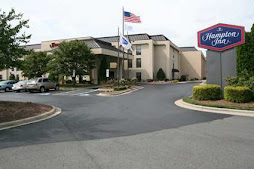Six years ago, the classic 1985 film “Back to the Future,” which won 13 awards and was nominated for an additional 23, was released on DVD with a new retrospective documentary about its making, gaining it new audiences and media attention. In the film, Marty McFly (played by Michael J. Fox), a high school senior, time-travels back to 1955 to his parents’ senior year to save the future for himself and his siblings, and in the end makes his parents’ lives better too.
Significantly, Marty serves as a peer tutor to his father, guiding him to become more confident to act and think for himself. Most notably, by the film’s end, we see the tangible results of Marty’s peer tutoring: George grows up to be a published writer of science fiction novels.
Coincidentally, the year the film hit theaters fell in the middle of a decade that gave rise to a wave of writing center publications, specifically texts about peer tutoring. As Harvey Kail notes in his editor’s remarks for the Fall 2008 special issue of The Writing Center Journal, dedicated to Kenneth Bruffee and the Brooklyn Project, “Bruffee publishes in the mid-1980s a series of essays that famously theorize peer tutoring as a paradigm of social constructionist pedagogy”(3). Moreover, Kail’s assertion about the essays is proved by the example of Marty and George from 1985’s Back to the Future: “Together and separately, they make a compelling argument for the value of organizing students to take each other seriously as writers and readers” (3).
As the end-note speaker at the joint IWCA/NCPTW conference in October 2008, Harvey Kail spoke of how far our profession has drifted from talking about what tutors do in tutorials and what they achieve and learn from being tutors. He issued a call to explore and recognize the contributions of our tutors.
SWCA saw this year as the ideal one to return our focus to our tutors’ voices and experiences, and to look ahead to how their voices create our futures.
directions from hotel to conference location
take HWY 74 east (turn right onto the highway from the Hampton Inn) through Monroe for 9.2 miles
after entering the town of Wingate, take a left onto Wilson Street (at the campus entrance)
cross the railroad tracks and take a right at the stop sign
LaVerne Banquet Hall (conference location) is immediately on the right
parking is available on the east side of the LaVerne building
after entering the town of Wingate, take a left onto Wilson Street (at the campus entrance)
cross the railroad tracks and take a right at the stop sign
LaVerne Banquet Hall (conference location) is immediately on the right
parking is available on the east side of the LaVerne building
CFP
Base proposals on the conference theme: Back to the Tutor. Creativity and originality are encouraged!
The conference schedule will be manipulated as needed to accommodate creative proposals. Interactive workshops and hands-on presentations are requested!
Please limit proposals to 200 words. The deadline for proposals is midnight on January 4, 2010. Please send proposals with the subject line "SWCA: The Carolinas Proposal" via email to swcacarolinas@gmail.com and attach a Word or rtf file version of the proposal that includes
name
phone number
email address
institutional affiliation
other participants' names (and affiliations, if different)
proposal type (individual-30 minute, individual-1 hour, group-1 hour, roundtable-1 hour, workshop-1 hour, workshop-2 hours, other-please specify time needed)
proposal title
one sentence describing proposal
audio visual needs
proposal (200 words max.)
Anyone presenting or participating in a proposal session must register for the conference.
The conference schedule will be manipulated as needed to accommodate creative proposals. Interactive workshops and hands-on presentations are requested!
Please limit proposals to 200 words. The deadline for proposals is midnight on January 4, 2010. Please send proposals with the subject line "SWCA: The Carolinas Proposal" via email to swcacarolinas@gmail.com and attach a Word or rtf file version of the proposal that includes
name
phone number
email address
institutional affiliation
other participants' names (and affiliations, if different)
proposal type (individual-30 minute, individual-1 hour, group-1 hour, roundtable-1 hour, workshop-1 hour, workshop-2 hours, other-please specify time needed)
proposal title
one sentence describing proposal
audio visual needs
proposal (200 words max.)
Anyone presenting or participating in a proposal session must register for the conference.

